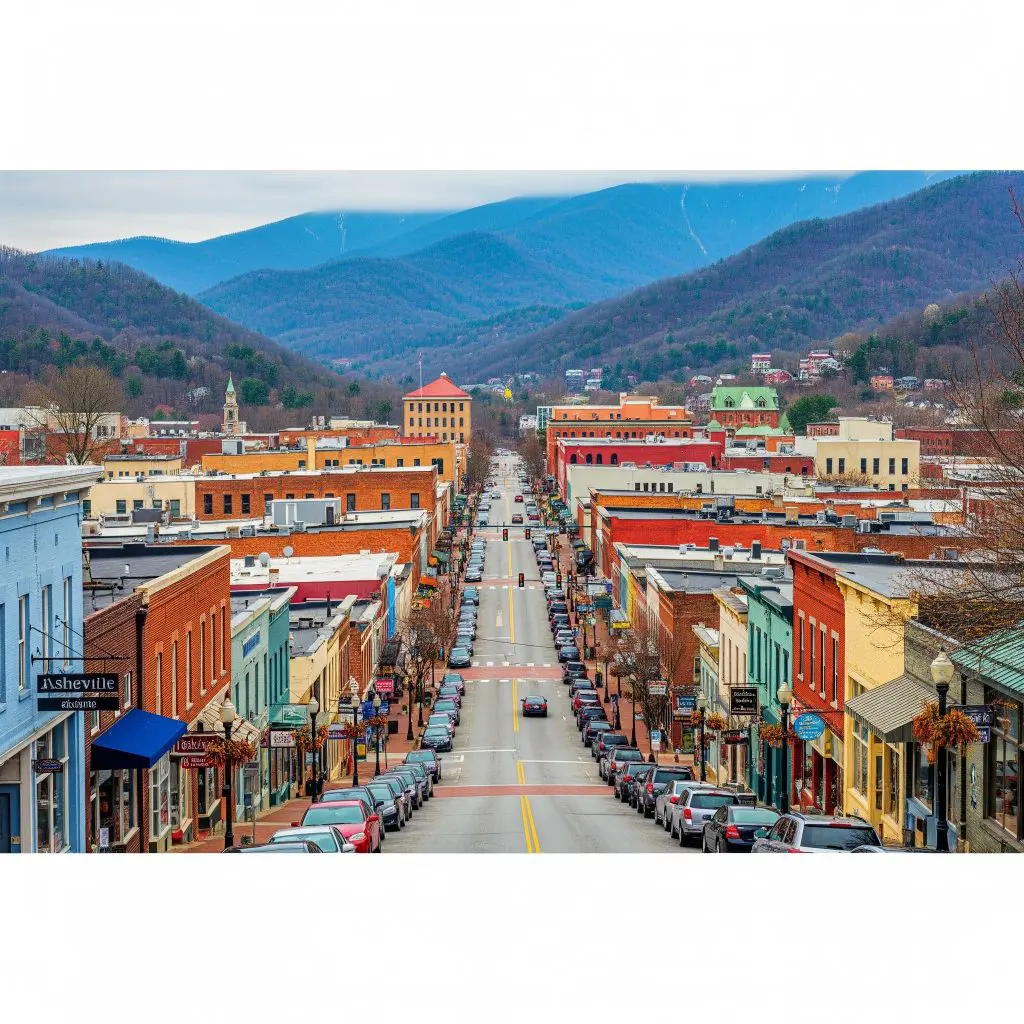Washington, DC Inflation Budgeting & Real Estate Investment Guide 2025
As 2025 unfolds, economic uncertainty, persistent inflation, and rapid urban development are challenging residents and investors in every major city across the United States. Nowhere is this more apparent than in the nation’s capital: Washington, DC. In this in-depth guide, we’ll explore how individuals and investors can approach inflation-smart budgeting and tap into the best real estate investment opportunities across the city, with a strong emphasis on commercial real estate.
- Washington, DC Inflation Budgeting & Real Estate Investment Guide 2025
- Understanding Inflation and Economic Trends in Washington, DC
- DC’s Local Economic Drivers & Forecast 2025
- Inflation Budgeting: Washington, DC Resident Strategies
- Washington, DC Real Estate Market Analysis 2025: Commercial Focus
- Neighborhood-Level Analysis: Where to Invest in Commercial Real Estate
- The Role of Transit and Geography in DC Real Estate Values
- Inflation Hedging: Commercial Real Estate as a Local Safe Haven
- DC Success Stories: Local Case Studies
- Forward-Looking Opportunities: Where to Invest Now
- Conclusion: Mastering DC’s Inflation Era
Understanding Inflation and Economic Trends in Washington, DC
Washington, DC’s robust economy largely insulates it from dramatic downturns, yet even the capital city is not immune to the pressures of sustained inflation. In 2024-2025, DC reported a citywide inflation rate hovering near 4.1%, driven by rising costs in housing, transportation, and services. As the center of federal government, DC enjoys relatively stable employment. However, local residents and investors must adapt to higher costs of living, property taxes, and shifting real estate valuations.

- Current Population (2025 est.): 715,000 (steady 1.5% annual growth)
- Median Household Income (2025): $97,000
- Unemployment Rate (2025): 4.2%
- Inflation Rate (2025 est.): 4.1%
- Median Home Price (2025): $680,000
- Median Rent (2025): $2,480/mo
DC’s Local Economic Drivers & Forecast 2025
- Federal government presence and contracting
- Massive ‘eds & meds’ sector: universities, research, hospitals
- Expanding technology and cybersecurity startups (NoMa, Navy Yard)
- Strong tourism and hospitality recovery post-pandemic
- Growth in professional services and lobbying sectors
The city continues to attract a young, highly educated workforce. DC’s projected GDP growth for 2025 is 2.3%, with higher wage pressures due to both public sector demand and private tech expansion.
Need capital? GHC Funding offers flexible funding solutions to support your business growth or real estate projects. Discover fast, reliable financing options today!
Test Your Expertise: The Complexities of the 1031 Exchange

As a sophisticated real estate investor, you understand that the 1031 Exchange is a cornerstone strategy for tax deferral and wealth accumulation. But beyond the basics, the intricacies of the 1031 Exchange rules can pose significant challenges. This quiz is designed to test your in-depth knowledge and highlight critical nuances that separate casual investors from true experts in 1031 Exchange transactions.
Instructions: Choose the best answer for each question.
⚡ Key Flexible Funding Options
GHC Funding everages financing types that prioritize asset value and cash flow over lengthy financial history checks:
-
Bridge Loans: These are short-term loans used to "bridge the gap" between an immediate need for capital and securing permanent financing (like a traditional loan or sale). They are known for fast closing and are often asset-collateralized, making them ideal for time-sensitive real estate acquisitions or value-add projects.
-
DSCR Loans (Debt Service Coverage Ratio): Primarily for real estate investors, these loans are underwritten based on the property's rental income vs. debt obligation ($\text{DSCR} = \text{Net Operating Income} / \text{Total Debt Service}$), not the borrower's personal income or tax returns. This offers flexibility for those with complex finances.
-
SBA Loans: The Small Business Administration (SBA) guarantees loans offered by partner lenders. While providing excellent terms (long repayment, lower rates), the application process is typically slower than private/bridge funding, often making them less suitable for immediate needs. SBA eligibility heavily relies on the DSCR metric for repayment assessment.
🌐 Learn More
For details on GHC Funding's specific products and to start an application, please visit their homepage:
The Ultimate DSCR Loan for Rental Property Quiz

Are you looking to expand your real estate investment portfolio? A DSCR loan might be the perfect tool to help you achieve your goals without relying on traditional income documentation. Test your knowledge with this quiz to see if you're ready to master the intricacies of a DSCR loan for rental property.
Inflation Budgeting: Washington, DC Resident Strategies
1. Track Local Cost of Living Adjustments
Washington, DC consistently ranks among the most expensive US cities. 2025 sees rent, property taxes, health care, and utility costs trending higher. Residents should re-evaluate monthly budgets, factoring in:
- Increased utility rates: +5% year-over-year
- Grocery and transportation costs: projected +3%-5% rises
- Annual property tax increases averaging 2% due to property appreciation
2. Strategic Housing Choices: Rent vs Own
Rising mortgage rates (6.8% avg. in 2025) and high median home prices make buying difficult, especially for first-timers. Residents should:
- Calculate 5- and 10-year housing cost projections
- Consider co-housing and roommate scenarios in high-rent areas (e.g., Dupont Circle, Logan Circle)
- Explore first-time homebuyer assistance: DC Open Doors, Home Purchase Assistance Program (HPAP)
3. Emphasize Emergency Savings and Inflation-Hedged Investments
✅ Small Business Resources
-
SBA – Small Business Administration
https://www.sba.gov - SCORE Mentors (Free Mentoring & Workshops)
https://www.score.org - Small Business Development Centers (SBDC)
https://americassbdc.org
Are You an SBA Real Estate Loan Expert?

Test your in-depth knowledge on using SBA Loans for owner-occupied commercial Real Estate acquisition. These questions delve into the critical details that can impact your business's growth and financial strategy.
With ongoing inflation, make sure to:
- Maintain 6-12 months of living expenses in savings
- Maximize DC-specific savings programs, like income tax-free municipal bonds
- Direct extra savings towards city-favored, inflation-resistant asset classes—especially local real estate
Washington, DC Real Estate Market Analysis 2025: Commercial Focus
High-level Market Trends
- Commercial vacancy rates: Declining, especially in adaptive reuse/mixed-use buildings
- Rent growth: Retail and flex office demand rebounding, up 2.9% YoY
- Property values: Premium for assets near transit, tech, and education hubs (NoMa, Southwest Waterfront, Union Market)
- Cap rates: Slight compression due to investor demand (avg. 5.3%)
Best Neighborhoods & Districts for Commercial Real Estate Investment
- NoMa/Union Market: Tech startups, mixed-use development, strong demand for retail/office/loft conversions. Flexible zoning encourages creative investments.
- Navy Yard/Capitol Riverfront: Major infrastructure improvements, MLB stadium, restaurants. Strong triple-net lease opportunities. Case Study: Local developer converted a 1950s warehouse into flexible tech offices, fully leased in 9 months, beating market projections.
- Downtown Core: Office-to-residential conversions, retail repositioning as hybrid work reshapes demand.
- Southwest Waterfront (The Wharf): Major mixed-use redevelopment, waterfront retail, luxury hotels.
- Petworth, Brookland, Ivy City: Rapidly gentrifying, smaller retail and live-work properties showing highest five-year yield growth (avg. 6.8%).
Property Tax & Regulatory Implications
✅ Real Estate Investor Resources
-
AirDNA (Short-Term Rental Data)
https://www.airdna.co - Rentometer (Rent Comps)
https://www.rentometer.com - Zillow Research & Data
https://www.zillow.com/research
DSCR Loan IQ Quiz!

Test your knowledge of Debt Service Coverage Ratio (DSCR) loans!
DC’s 2025 commercial property tax rate: .89 per 0 of assessed value, one of the highest among major US cities, but ample investment incentives exist:
- DC Opportunity Zones: Tax deferrals and potential capital gains exclusions for redeveloping in designated areas (e.g., parts of Anacostia, Ivy City)
- Historic Preservation Tax Credits: For adaptive reuse projects (common in Old City, Capitol Hill)
- City grants and low-interest loans: For energy-efficient commercial retrofits and Main Street business support (especially in Petworth, Brookland)
Local Cost of Doing Business & Market Climate
Although DC’s regulatory environment is rigorous—permitting, zoning, and environmental standards are closely monitored—the city continues to streamline approvals for mixed-use and commercial redevelopment, with several fast-track corridors (e.g., H Street NE, Southwest Waterfront).
Neighborhood-Level Analysis: Where to Invest in Commercial Real Estate
| Neighborhood | 2025 Commercial Cap Rate | Fundamental Drivers | Example Investment |
|---|---|---|---|
| NoMa/Union Market | 5.3% | Tech, retail renaissance, new apartments | Refurbished industrial lofts to office/retail spaces |
| Navy Yard | 4.9% | Entertainment, professional services hubs, transit access | Triple-net lease on restaurant/retail shells |
| Petworth | 6.7% | Population influx, small business growth | Mixed-use live/work property acquisitions |
| Southwest Waterfront | 4.5% | Luxury mixed-use, hospitality, events | Retail/food service spaces in new developments |
| H Street Corridor | 6.1% | Gentrification, nightlife, transit-oriented development | Retail condo conversion projects |
The Role of Transit and Geography in DC Real Estate Values
Property values in DC are tethered to public transit proximity and walkability. The Metro’s recent Purple Line expansion has revalued properties near transit stops—expect continued above-average rent increases and capital appreciation in affected districts (notably NoMa, Union Market, and Navy Yard).
Geographic constraints—such as rivers, federal land ownership, and historic overlays—tighten supply, amplifying inflation impacts. Investors benefit most by targeting pockets of new zoning flexibility and transit-oriented redevelopment in eastern and southeastern DC neighborhoods.
Inflation Hedging: Commercial Real Estate as a Local Safe Haven
Commercial real estate, especially retail/office spaces with triple-net (NNN) leases, provides built-in inflation protection—tenants absorb higher costs and can pass increases through to customers. Expert investors in DC are shifting portfolios to:
- Long-term, inflation-indexed commercial leases
- Properties with strong anchors (medical, tech, government contractors)
- Redevelopment projects tied to city infrastructure investments
Case in point: In 2024, a local investment group acquired a cluster of small retail buildings in Brookland, negotiated 10-year leases with annual rent escalators tied to CPI, and has seen NOI increase 9% even as expenses have climbed.
DC Success Stories: Local Case Studies
- Union Market Office Conversion: Former warehouse purchased in 2022 for $7M, redeveloped as flexible workspaces, fully leased to tech and design firms by late 2024; property value now $11.2M, surpassing inflation.
- H Street Corridor Retail Condos: Purchased pre-pandemic at $500/sq ft, these units are now trading at $700/sq ft thanks to spike in retail and nightlife activity and direct Metro access.
- Ivy City Distillery Expansion: Leveraged DC economic development grants to expand a craft distillery; new tasting room and retail shop rapidly outpaced inflationary construction cost increases with surging post-pandemic tourism.
Forward-Looking Opportunities: Where to Invest Now
For 2025, the best inflation-resistant commercial real estate opportunities in Washington, DC are concentrated in rapidly gentrifying corridors and mixed-use districts. To hedge inflation risk and capture outsized returns, focus on:
- Redevelopment in Opportunity Zones: Incentives increase net yields and buffer inflationary costs.
- Properties tied to Metro expansion: Proximity to new lines amplifies future rent and value appreciation.
- Flexible-use/tech-friendly commercial spaces: High demand, especially from sectors less sensitive to inflation.
- Small retail/mixed-use in growth districts: Petworth, Anacostia, Ivy City offer lower entry points and higher projected returns.
Above all, successful budgeting and investment in DC during high inflation involves thorough local research, leveraging city incentives, and focusing on property types and locations that historically outperform in inflationary cycles.
Conclusion: Mastering DC’s Inflation Era
Washington, DC in 2025 remains one of America’s most resilient and opportunity-rich urban markets. While inflation will continue to test personal budgets and business plans, strategic local investment—especially in commercial real estate—remains a powerful hedge. By carefully navigating regulatory dynamics, property tax considerations, neighborhood-specific trends, and city economic policies, both residents and investors can not only weather inflation’s impact, but thrive in the capital’s ever-competitive environment.
Get a No Obligation Quote Today.



